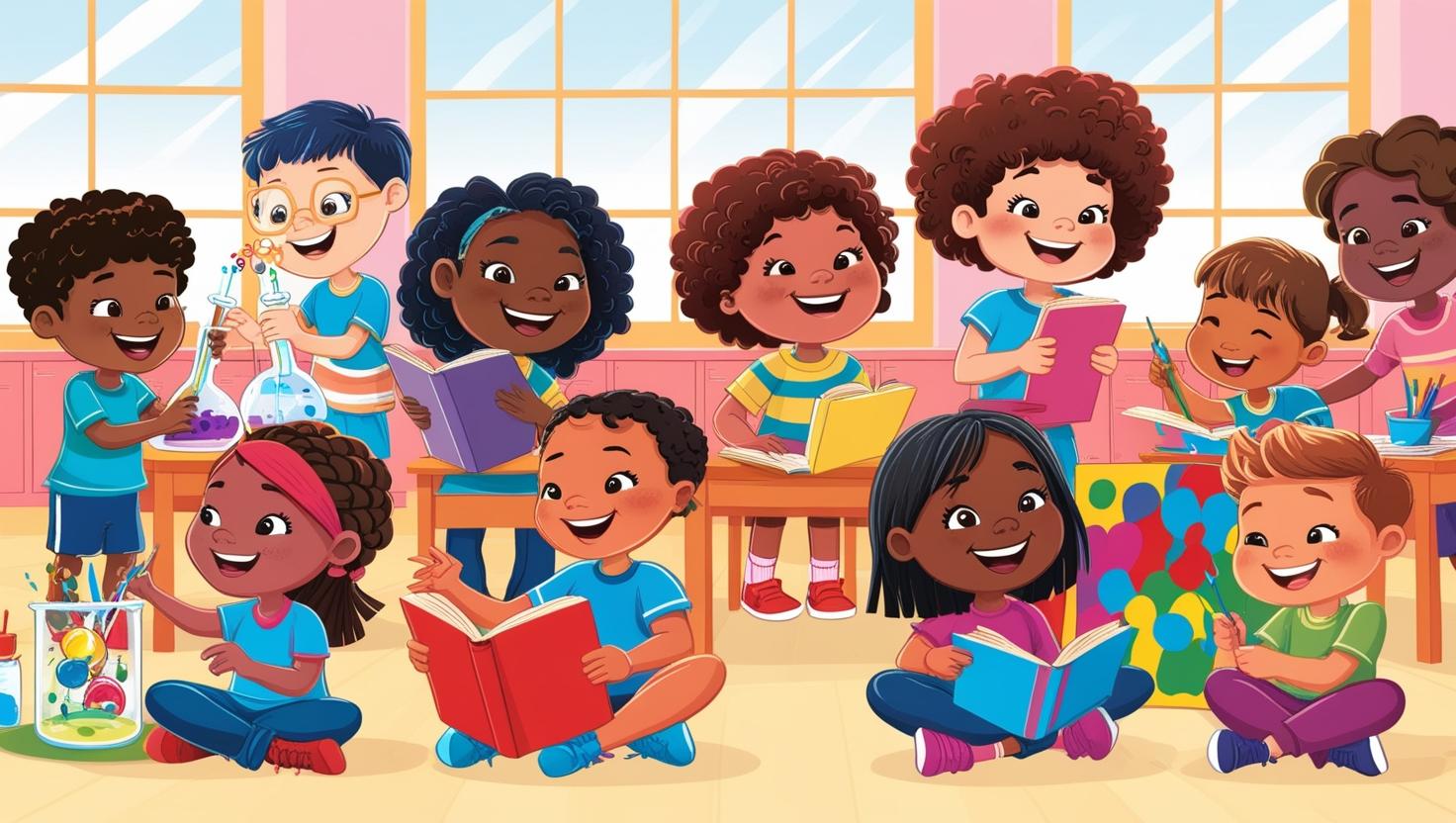
Theoretical knowledge in child education is valuable, but applying it in real-world scenarios helps build critical problem-solving skills and practical understanding. This post outlines a series of hypothetical scenarios designed to help you navigate challenges in child education, ensuring that your solutions are both effective and grounded in educational principles.
Scenario 1: Managing a Distracted Learner
The Situation
A 7-year-old student, Raj, has trouble focusing during lessons. He often looks out of the window or fidgets with his stationery.
Your Task
- Identify potential reasons for his distraction (e.g., boredom, difficulty understanding, or environmental factors).
- Develop strategies to engage Raj and keep his attention during lessons.
Potential Solutions
- Use interactive teaching tools, such as educational games or videos.
- Introduce short breaks between activities to refresh his focus.
- Provide personalized tasks that match his interests, like using sports examples for math problems.
Scenario 2: Resolving a Conflict Among Peers
The Situation
Two children, Anya and Kabir, argue during group work, blaming each other for a mistake in their project.
Your Task
- Intervene to diffuse the situation while teaching conflict-resolution skills.
- Ensure the project progresses without further disputes.
Potential Solutions
- Mediate by asking each child to share their perspective.
- Encourage teamwork by focusing on their common goal.
- Use the opportunity to teach empathy by asking how each would feel in the other’s place.
Scenario 3: Addressing a Learning Disability
The Situation
You notice that Maya, an 8-year-old student, struggles with reading and frequently skips words.
Your Task
- Recognize signs of a possible learning disability, such as dyslexia.
- Develop an inclusive plan to support her learning without singling her out.
Potential Solutions
- Use phonics-based teaching to improve her reading skills.
- Provide additional practice with word recognition using flashcards.
- Partner her with a buddy for peer support during reading activities.
Scenario 4: Encouraging Participation in a Shy Child
The Situation
Arjun is reluctant to answer questions in class, even when he knows the answers. He seems nervous about speaking in front of others.
Your Task
- Build his confidence to participate without pressuring him.
- Create a supportive environment that encourages his involvement.
Potential Solutions
- Start with one-on-one interactions to help him feel comfortable.
- Use low-pressure activities, like writing answers on a board or participating in small groups.
- Praise his efforts to build his self-esteem.
Scenario 5: Engaging Parents in Their Child’s Learning
The Situation
A parent-teacher meeting reveals that some parents are not actively involved in their child’s education due to time constraints or lack of understanding of their role.
Your Task
- Create strategies to engage these parents in their child’s learning journey.
Potential Solutions
- Share simple, actionable tips, like reading a bedtime story or discussing school topics during dinner.
- Organize workshops on how parents can support learning at home.
- Use digital tools, such as messaging apps, to keep parents updated on their child’s progress.
Scenario 6: Designing an Inclusive Classroom
The Situation
Your class includes children with diverse abilities and cultural backgrounds. Some students require additional support, while others excel and need advanced challenges.
Your Task
- Create a classroom environment that caters to all learning needs.
Potential Solutions
- Use differentiated instruction techniques, like providing multiple activity options for the same lesson.
- Incorporate cultural elements into lessons to celebrate diversity.
- Arrange peer-mentoring systems where advanced students assist others.
Scenario 7: Implementing a Growth Mindset
The Situation
A student, Pooja, often says, “I’m not good at math” and avoids trying new problems.
Your Task
- Help her adopt a growth mindset to overcome her fear of failure.
Potential Solutions
- Share stories of famous individuals who struggled but succeeded through perseverance.
- Praise her effort rather than her ability.
- Break math problems into smaller, achievable tasks to build her confidence.
Scenario 8: Responding to an Emergency
The Situation
During recess, a child falls and sustains a minor injury. Other children gather around, and some become upset.
Your Task
- Manage the situation calmly, ensuring the injured child receives help and others are reassured.
Potential Solutions
- Administer basic first aid and comfort the injured child.
- Redirect the other children’s attention to another activity.
- Use the incident as a teaching moment to discuss safety and kindness.
Functional External Links
#ChildEducation #InteractiveLearning #InclusiveEducation #GrowthMindset #ParentalInvolvement #TrendingNow #InspirationDaily #ExploreMore #LifestyleTips #InTheNews #DigitalAge #Insights #Innovation #BehindTheScenes #WorldView #Digital #forensic #postyhive
Read more on our more trending Special page








Be the first to leave a comment